HOME >> CHINA
Faded factory
Source:Global Times Published: 2015-5-28 19:38:01
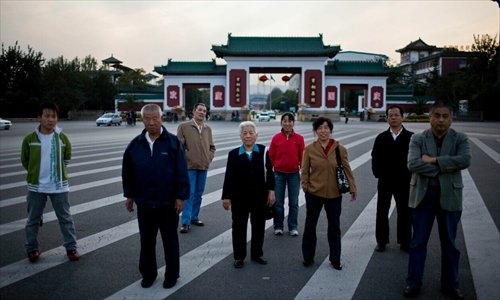
Li Chaoxing (second from left), 85, and his family stand in front of Shougang's east entrance. Three generations of Li's family have worked at Shougang. Photo: Li Hao/GT
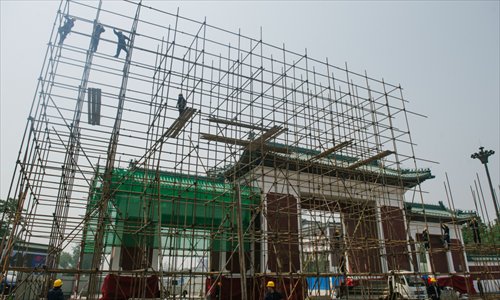
Workers tear down the old east entrance of Shougang to make way for an extension of one of Beijing's major roads. Photo: Li Hao/GT
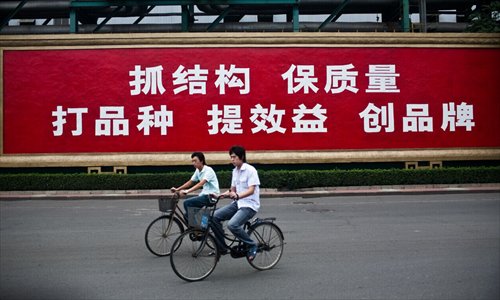
Two men cycle past a slogan that advocates quality and efficiency in work. Photo: Li Hao/GT
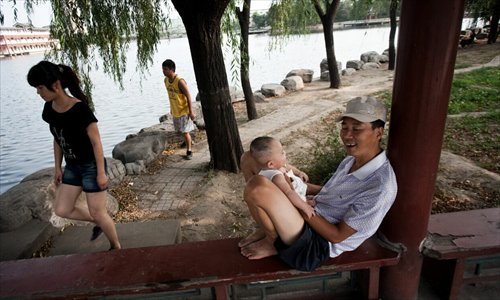
Nearby residents relax at a park in Shougang. In order to respond to public concerns about pollution, Shougang built an artificial lake and a park. Photo: Li Hao/GT
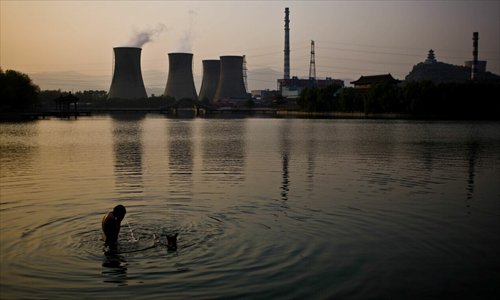
A man and his dog swim in an artificial lake near Shougang. Photo: Li Hao/GT
When 85-year-old Li Chaoxing walked past the east entrance of the Capital Iron and Steel Co (Shougang) in Beijing's Shijingshan district a couple of days ago, he stopped and mumbled "Terrible."
On May 25, construction workers officially started tearing down the company's old east entrance. The entrance was once a symbol of the company's success, and now it's being moved to a new site in order to make way for the extension of Chang'an Avenue, one of Beijing's major roads.
Like many residents of Shijingshan, Li and his family's history is intimately intertwined with Shougang, once China's biggest steel plant.
Li had worked there for 41 years until he retired in 1990. His wife was a worker in the logistics department there and his son was a repairman. At that time, being a factory worker meant a high social status. But now, the situation is entirely different.
In 2005, to prepare for the 2008 Beijing Olympic Games, the Chinese government took a series of measures to clean up the city. Most of Shougang was torn down and moved to Caofeidian in neighboring Hebei Province. More than 100,000 people migrated to Hebei to work after a new factory was built there.
The Hebei factory piloted new technologies to make steel production more environmentally friendly. It purifies and recycles its waste products, as opposed to releasing these pollutants into the air and rivers as Shougang did in the past.
Production at the Shougang site in Beijing gradually stopped and the industrial hulk fell silent. Many of its now-retired workers miss the old days, including Li's family. Along with being part of community of workers, they had benefits not enjoyed by others, such as getting free food during the holidays and free healthcare.
But many people think that shutting down Shougang was the right move. Because of the relocation of steel production, as well as other measures taken over the years, Beijing's environment is gradually improving.
According to official data, the average PM 2.5 level of the first four months of 2015 was 19 percent lower compared to the same period last year. The number of days with "good air quality" was 57, eight days more than in the first four months of 2014.
Posted in: In-Depth